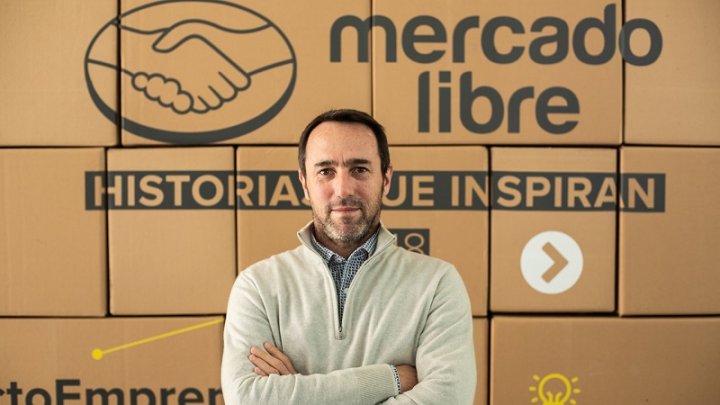
Marcos Galperin During an IDEA colloquium, a business meeting with anti-worker ideas, together with Paolo Rocca (owner of Techint) he asked for labor reform. This is a classic employer demand: eliminate the rights of workers. This happened in 2017 when, after the mid-term elections, Mauricio Macri proposed a stage of permanent reformism (counter-reforms), but at the end of that year the popular resistance to the rejection of the pension reform buried Macri’s aspirations.
Despite the failure of Macrismo to advance with labor reform, Galperin won a Collective Bargaining Agreement that was signed at the end of 2018. The agreement between Mercado Libre and the Union of Loading and Unloading Workers for its logistics plant in the Central Market of Buenos Aires (CCT 1591/2019 E) was approved by the then Minister of Production and Labor, Dante Sica.
The owner of Mercado Libre achieved this agreement thanks to the complicity of the Loading and Unloading union, which excluded Mercado Libre from the application of its own activity agreement, and resorted to the creation of a “new” activity.
Regarding this agreement, neither the governor of the Province of Buenos Aires, Axel Kicillof, nor Fernando Espinoza, mayor of La Matanza, denounced Galperin’s advance on labor rights. On the contrary, they present the district as the “capital of innovation and work.”
Galperin benefits from labor flexibility and also from tax gifts. In Argentina Mercado Libre is a company benefited by the Software Law. This law was promoted by the first Kirchnerism and updated in Congress in 2020 with the name of the Knowledge Economy Law, which includes awards such as the reduction in employer contributions and income tax. In 18 months of 2022 and 2023 Mercado Libre obtained US$ 142 million in discounts.
Keys to the slave agreement tailored to Galperin
The labor reform promoted by the Government includes points that Galperin already applies in its plant located in La Matanza. This enables the same company to have workers under this agreement and workers outside the agreement.
Below are the main points:
-Hour bank: Bye the payment of overtime and daily hours, an hours bank system was established. The company can change schedules and number of hours. There is a monthly workday of 192 hours, and a semiannual “hour bank.” In said Mercado Libre plant, your boss can decide that your day today is 12 hours in a row without paying extras, with breaks on any day of the week that are not necessarily weekends. When the semester ends, the hours worked are calculated, and if they are greater than the average, they remain as a balance in favor of the worker, who can compensate them with breaks. If he does not reach the average in the semester, the worker owes it to Marcos Galperin or he can decide to suspend with the payment of half his salary.
-Perform all types of tasks: Workers are obliged to carry out any task, since all employees are versatile.
-Vacation whenever your boss wants: Mercado Libre can grant vacations at any time of the year and fragment them into periods of at least seven consecutive days, as needed by the company.
-Restricts the right to strike: The Galperin agreement restricts the right to strike. Before starting a force measure, the workers at the Mercado Libre logistics plant undergo a self-composition process (the parties involved reach an agreement directly) of conflicts for 15 business days (Cremonte, Zamboni, La Capital, 2019). After that period, Mercado Libre can request the intervention of the Ministry of Labor, which can dictate mandatory conciliation. If after those almost two months the workers want to stop, they have to guarantee minimum guards.
The labor reform that Milei wants to impose is already being experienced by thousands of workers in its plant. As Juan, a Mercado Libre worker, relates, “at 2 in the morning the boys and girls enter the warehouse, the truck is in the dock, the Clark lowers the pallets. The cars on one side are labeled with a code, the picking says where they go, what area it touches, what route. You sweat, you walk quickly, “come on, come on” shouts a supervisor. The routing of each delivery person is done by a programmer, a young freelancer who puts together hundreds of hundreds…” This is how the day begins at the Mercado Libre warehouse.
This is the freedom that Galperin and big businessmen defend: the freedom to exploit workers without limits.
We must face the labor reform of Milei and the big businessmen. The CGT and the union leaders have to break the truce with the Government and call for a fight plan to defeat the ongoing looting of the government and the bosses.
Source: www.laizquierdadiario.com

